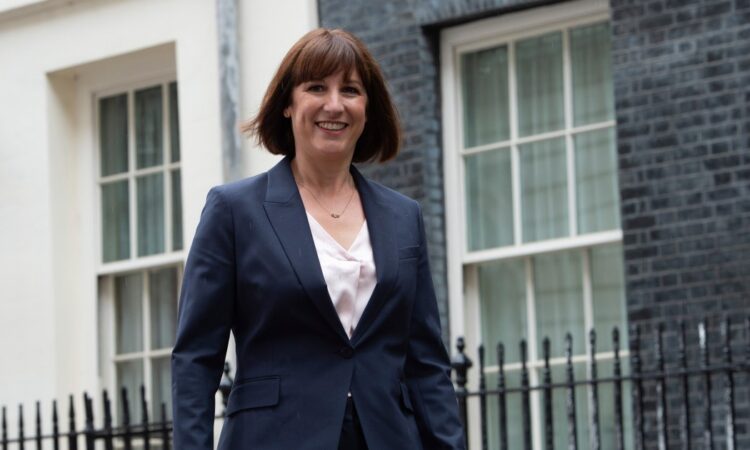
Chancellor of the Exchequer Rachel Reeves to deliver speech expected to lay the groundwork for tax rises.
The United Kingdom’s new chancellor of the exchequer is accusing the previous government of covering up the dire state of the nation’s finances as she prepares to deliver a speech to Parliament that is widely expected to lay the groundwork for spending cuts and higher taxes.
In extracts of her speech released late on Sunday, Rachel Reeves professed shock at the scale of the problems she discovered following a department-by-department review of public spending commissioned shortly after she took office three weeks ago.
While the excerpts included no figures, Reeves is expected to outline a 20 billion-pound ($26bn) shortfall in public finances.
“It is time to level with the public and tell them the truth,’’ Reeves will tell the House of Commons.
“The previous government refused to take the difficult decisions. They covered up the true state of the public finances. And then they ran away.’’
Prime Minister Keir Starmer’s left-leaning Labour Party won a landslide election victory earlier this month, ending 14 years of Conservative Party rule.
During the campaign, critics accused both parties of a “conspiracy of silence” over the scale of the financial challenges facing the next government.
Labour pledged during the campaign that it would not raise taxes on “working people”, saying its policies would deliver faster economic growth and generate the additional revenue needed by the government.
The Conservatives, meanwhile, promised further tax cuts in the autumn if they were returned to office.
As proof that the previous government was not honest about the challenges facing the UK, Starmer’s office highlighted recent comments from former Treasury chief Jeremy Hunt confirming that he would not have been able to cut taxes this year if the Conservatives had been returned to power.
Those comments came in an interview with the BBC in which Hunt also accused Labour of exaggerating the situation to justify raising taxes now that they have won the election.
“The reason we’re getting all this spin about this terrible economic inheritance is because Labour wants to raise taxes,” Hunt said on July 21.
“If they wanted to raise taxes, all the numbers were crystal clear before the election … They should have levelled with the British public.”
The extracts of Reeves’s speech did not mention potential tax increases, though analysts speculate that any such measures will not be introduced until the government unveils its budget later this year.
Instead, Reeves focused on efforts to rein in spending, saying a new office will immediately begin identifying “wasteful spending”.
She also plans to stop non-essential spending on consultants and sell off surplus property.
While Reeves has not yet published the details of her audit, Starmer’s office on Sunday released an overview of what it revealed.
Those findings led the government to accuse the Conservatives of making significant funding commitments for this financial year “without knowing where the money would come from”.
It argued that the military had been “hollowed out” at a time of increasing global threats and the National Health Service was “broken”, with some 7.6 million people waiting for care.
And despite billions spent to house migrants and combat the criminal gangs ferrying migrants across the English Channel on dangerous inflatable boats, the number of people making the crossing is still rising, Starmer’s office said.
Some 15,832 people have crossed the Channel on small boats already this year, 9 percent more than during the same period in 2023.
“The assessment will show that the UK is broke and broken — revealing the mess that populist politics has made of the economy and public services,” Downing Street said in a statement.
The quandary the government finds itself in should be no surprise, according to the Institute for Fiscal Studies, an independent think tank focused on Britain’s economic policies.
At the start of the election campaign, the institute said the UK was in a “parlous fiscal position” and the new government would have to either raise taxes, cut spending or relax the rules on public borrowing.
“For a party to enter office and then declare that things are ‘worse than expected’ would be fundamentally dishonest,” the IFS said on May 25.
“The next government does not need to enter office to ‘open the books’. Those books are transparently published and available for all to inspect.”






